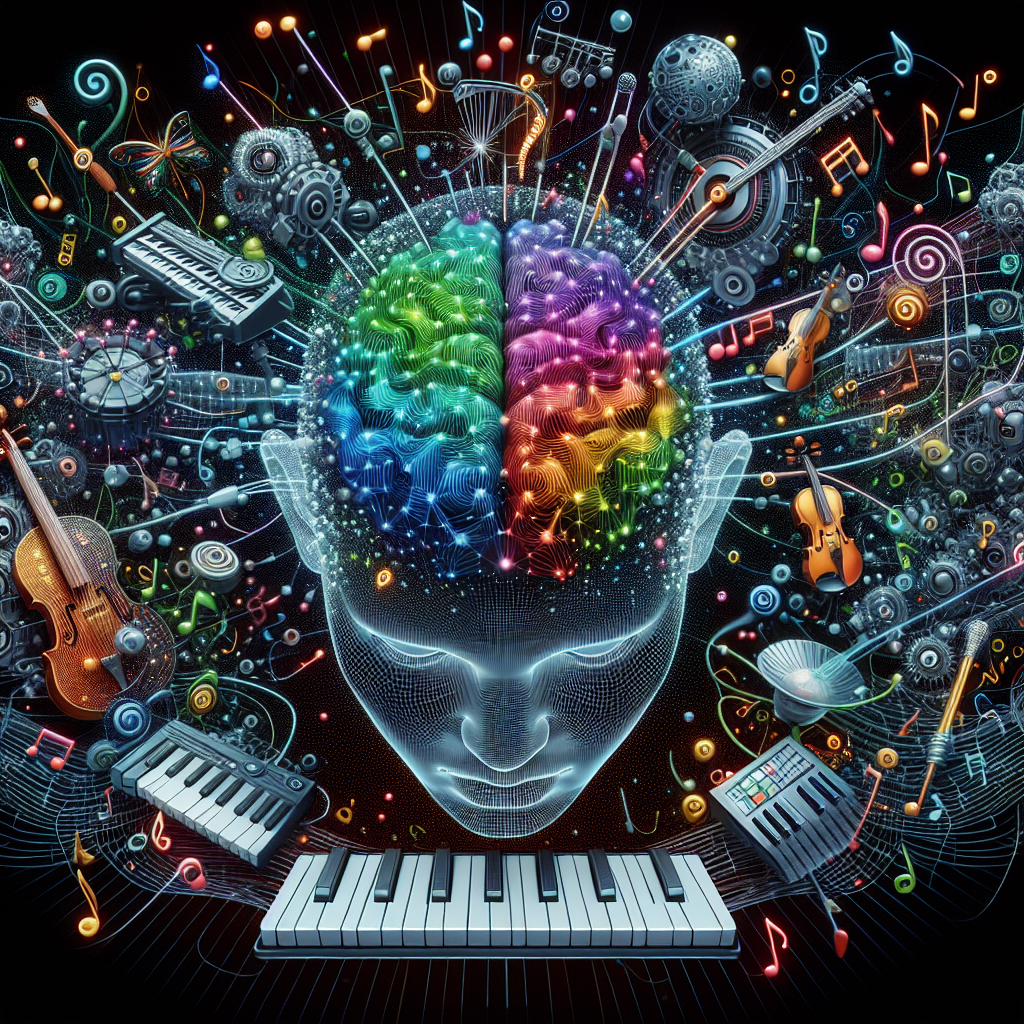Generative AI and Music Production: Innovations in Composition
In recent years, there has been a significant increase in the use of generative AI in music production. This technology has brought about a revolution in how music is created, allowing for new and innovative compositions to be generated with the help of algorithms and machine learning. In this article, we will explore the role of generative AI in music production, the advancements it has brought to the industry, and the potential it holds for the future of music creation.
What is Generative AI?
Generative AI is a branch of artificial intelligence that focuses on creating new content, such as music, art, or text, using algorithms and machine learning techniques. In the context of music production, generative AI algorithms are used to generate new musical compositions, melodies, harmonies, and rhythms. These algorithms are trained on vast amounts of musical data, allowing them to learn patterns and structures that are common in music and use this knowledge to create new, original pieces.
How is Generative AI Used in Music Production?
Generative AI is used in music production in a variety of ways. One of the most common applications is in creating backing tracks or accompaniments for songs. These algorithms can generate music that complements a melody or vocals, adding depth and complexity to a composition. Generative AI can also be used to create entire pieces of music, from melodies to harmonies to rhythms, without any human intervention. This allows for the rapid creation of new music, which can be useful for artists and producers looking to experiment with different styles and genres.
Another way generative AI is used in music production is in the creation of music samples and loops. These algorithms can generate short musical phrases or patterns that can be used as building blocks for larger compositions. This can be particularly useful for producers looking to add unique elements to their tracks or for musicians looking for inspiration for their own compositions.
Advancements in Generative AI for Music Production
In recent years, there have been significant advancements in the field of generative AI for music production. One notable development is the use of neural networks, a type of machine learning algorithm that is particularly well-suited for tasks involving complex patterns and structures. Neural networks have been used to create generative AI algorithms that can produce highly realistic and sophisticated musical compositions, with a level of complexity and nuance that was previously unattainable.
Another advancement in generative AI for music production is the use of reinforcement learning techniques. These algorithms are able to learn and improve over time through trial and error, allowing them to generate more complex and diverse musical compositions. By training these algorithms on a wide range of musical styles and genres, they can produce music that is both innovative and coherent, with a level of creativity that rivals that of human composers.
The Future of Generative AI in Music Production
The future of generative AI in music production is bright, with the potential to revolutionize the way music is created and consumed. As algorithms continue to improve and become more sophisticated, we can expect to see even more innovative and creative compositions being generated by AI. This could lead to a proliferation of new music styles and genres, as well as new ways of collaborating with AI in the creation process.
One exciting possibility for the future of generative AI in music production is the use of AI-generated music in live performances. Artists and producers could use generative AI algorithms to generate music in real-time during a concert or performance, creating a unique and dynamic experience for the audience. This could open up new possibilities for improvisation and experimentation in live music, blurring the lines between human and machine creativity.
FAQs
Q: Can generative AI replace human composers and musicians?
A: While generative AI has the potential to create new and innovative music, it is unlikely to completely replace human composers and musicians. AI lacks the emotional depth and intuition that human artists bring to their work, and there is a unique creative spark that only humans can provide. Instead, generative AI is best viewed as a tool to aid and inspire human creativity, rather than a replacement for it.
Q: How can I start using generative AI in my music production?
A: There are a number of tools and software available that can help you incorporate generative AI into your music production workflow. Platforms such as Amper Music, AIVA, and Google Magenta offer AI-powered tools for creating music, while software like Ableton Live and Logic Pro X have built-in features for working with generative music. By experimenting with these tools and incorporating generative AI into your creative process, you can explore new possibilities and push the boundaries of your music production.
Q: Is generative AI ethical in music production?
A: The ethical implications of generative AI in music production are a complex and evolving issue. While AI can offer new avenues for creativity and innovation, there are concerns about issues such as copyright infringement, plagiarism, and the impact on human creativity. It is important for artists and producers to be mindful of these issues and to approach the use of generative AI in a responsible and ethical manner, respecting the rights of creators and acknowledging the limitations of AI in the creative process.
In conclusion, generative AI has brought about significant advancements in music production, allowing for new and innovative compositions to be generated with the help of algorithms and machine learning. The future of generative AI in music production holds great promise, with the potential to revolutionize the way music is created and consumed. By embracing this technology and exploring its possibilities, artists and producers can push the boundaries of their creativity and create music that is truly groundbreaking and original.

